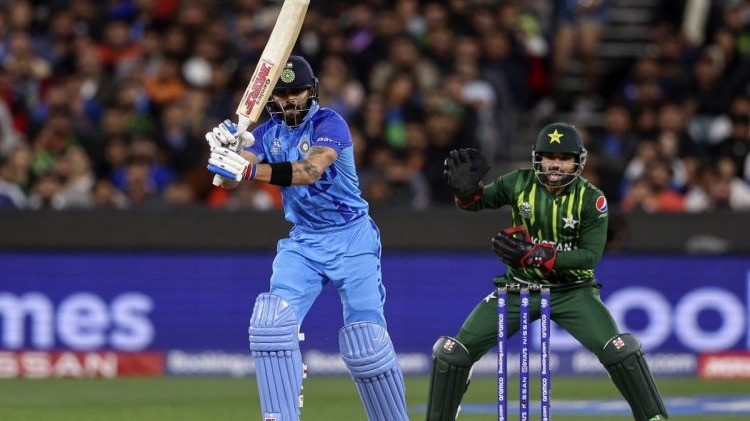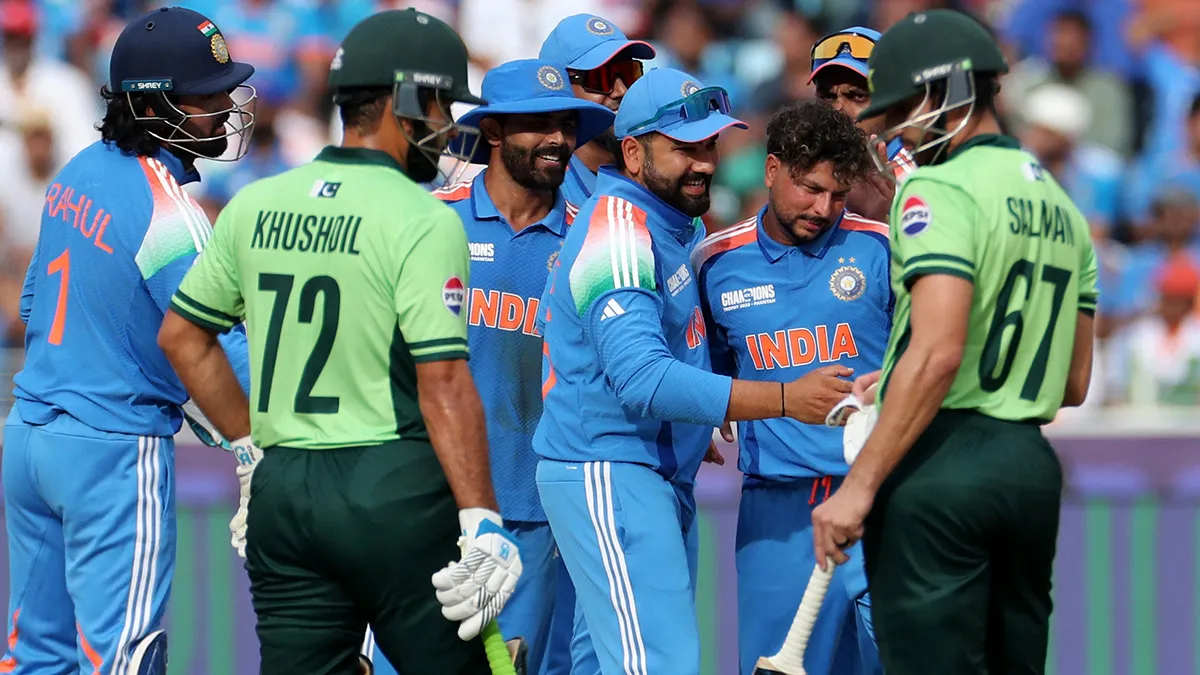In the last 12-24 hours, you might be seeing a lot of reels or videos on social media that might tell you how watching the India vs Pakistan is ‘deshdroh’ and how by watching the game and not ‘boycotting’ it, you are showing disrespect to all the victims of the Pahalgam terror attack. Now, before I move forward, I want to make it amply clear that the purpose of this article is not to disrespect anyone, especially the victims of a heinous terror attack.
The Pahalgam terror attack was undoubtedly one of the worst attacks we have seen in the past few years. The attack, followed by India’s ‘Operation Sindoor’, created huge unrest between the two countries (as is natural). It also led to a total shutdown on any import or export between the two countries, with India even shutting down water supply to Pakistan and calling the Indus Water Treaty null and void, in essence. So it is quite sensible for the Indian citizens to be emotional and not want their country to do anything with Pakistan, including Sports.
Here comes the especially tricky part. While it is easy to shut down bilateral cricket matches, i.e., no India vs Pakistan series, be it Test, ODI, or T20Is, which we have been doing for more than 10 years now, multilateral/multinational sports tournaments come in a particularly grey area. Why do you ask? Well, essentially because the fixtures aren’t set by either of the countries but rather by the governing bodies, for example, ICC or the ACC, which is now organising the Asia Cup. In such cases, there are a few things that people usually say are the solution to this problem. Let’s sit and decode whether that is possible or not.
Why can’t Team India just forfeit the match?
Forfeiting doesn’t mean that the game is being abandoned. It means that one team is not going to play the game. In the context of Team India, it isn’t possible to forfeit the game against Pakistan; here’s why. Since this is a group stage of a multinational tournament, even a single point can be the difference between going to the semis or going home.
In such a case, let’s say India does forfeit the game against Pakistan, then Pakistan gets the 2 points from the game, and India gets a loss. It might not seem like a big deal, but imagine a scenario where Pakistan tops the group stage with 3 wins and somehow the UAE manages to win 2 games, the same as India. In such a case, all comes down to the NRR. If India somehow has a lower NRR, then they’re out of the tournament. Therefore, since this has an element of risk of elimination attached to it, forfeiting might not be a logical option even though it might emotionally feel like one.

Can’t BCCI use its influence and make sure that India and Pakistan do not play together?
Coming on to the bigger question. BCCI, the world’s biggest cricket board, with more than 40% share in ICC’s revenue, is clearly the most powerful, along with the English Cricket Board (ECB) and the Australian Cricket Board. Together, these boards are called the Big 3 of world Cricket. Logically, in the context of the Asia Cup, the BCCI is the most powerful board in the Asian Cricket Council and hence, should have a final say in each matter. Why?
Because it is India that is bringing in the majority of the viewership and revenue. Therefore, common sense dictates that if BCCI refuses to play Pakistan in the Asia Cup, the ACC will be forced to put the two teams in two separate groups to avoid a clash. But then why does it not happen? One, and the major part of it is the revenue. India vs Pakistan is arguably the biggest cricketing event and one of the biggest sporting events globally, with billions joining in to watch the game. Second, it is not the BCCI but the ACC, a group of multiple cricket boards, that sets the schedule. So, even if BCCI objected to a fixture but the other boards agreed to it, the spirit of democracy and sportsmanship dictates that BCCI will have to accept the fixture, which it does.
That raises the question: if the BCCI is already the biggest and richest board of them all, why still play for money? The answer lies in the fact that the ACC needs money to survive and grow. And an India vs Pakistan fixture is the easiest way to bring it in. Just think about the sheer revenue such a clash generates through advertisements, broadcasters, and ticket sales. This money, along with earnings from the other matches, goes into paying participating nations, especially those who rely on it, like the UAE, Hong Kong, and Oman. But it doesn’t stop there. There’s the winners’ prize, the runners-up prize, operational expenses, and the need to remain profitable enough to reinvest in grassroots cricket across countries that don’t yet have a strong cricketing ecosystem or a massive fan following. So, as much as it may upset some people, big fixtures like India vs Pakistan will continue to be the financial backbone of these regional tournaments, simply because of the financial realities that the ACC and smaller boards face.
Now, let’s look at another angle. The argument that the BCCI should use its influence to avoid playing Pakistan doesn’t hold up when you consider the tournament format. What happens if India forfeits the group-stage match on Sunday, only to meet Pakistan again in the finals? Should India forfeit again and just hand over the trophy? If your answer is yes, then you’re letting emotions cloud logic. Think about it. Wouldn’t it be even more disrespectful to the families of the victims if Pakistan were to lift the trophy that India could have easily won, leaving them with the impression that India was “too scared” of the so-called mighty Pakistanis on the cricket field?
In the end, emotions will always run high around these matches. But the reality is, things are far easier said than done. Until a genuine long-term solution emerges, one that balances both the sentiments of the people and the passion of cricket fans, we’ll keep seeing these kinds of debates flare up every time India and Pakistan step onto the same field.

